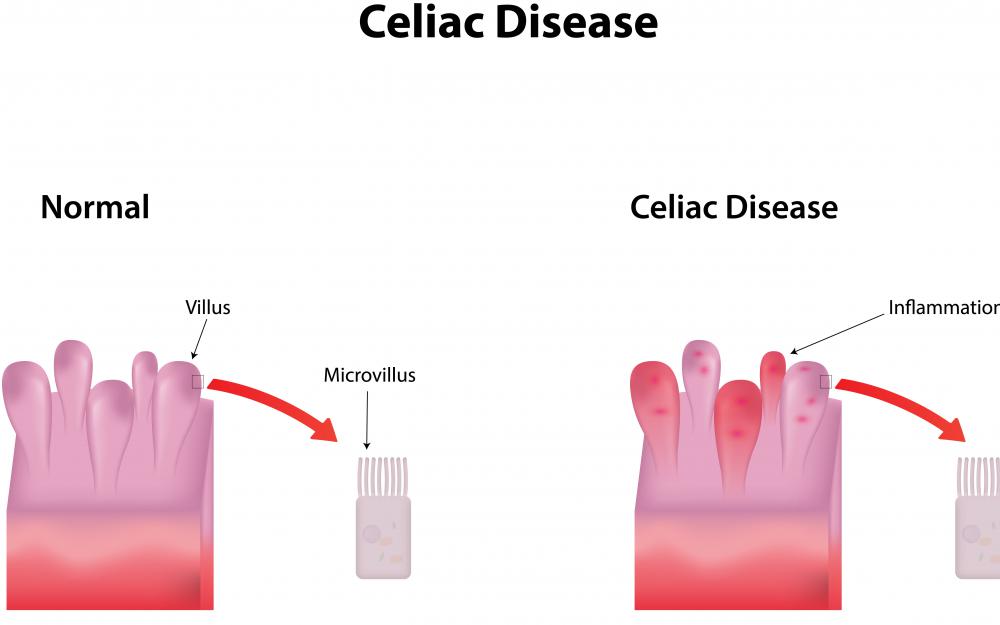At TheHealthBoard, we're committed to delivering accurate, trustworthy information. Our expert-authored content is rigorously fact-checked and sourced from credible authorities. Discover how we uphold the highest standards in providing you with reliable knowledge.
What Is the Relationship between Gluten and Inflammation?
The relationship between gluten and inflammation is well known. In people who are sensitive or intolerant to gluten, the consumption of this nutrient, which is found in wheat and rye, as well as barley and a few other grains, will cause an inflammatory response in the body as the immune system attempts to fight it off. Some nutritionists recommend cutting back on gluten even for individuals who are not sensitive or intolerant, but who suffer from other inflammatory conditions, such as rheumatoid arthritis. It is important for individuals to recognize the connection between the consumption of gluten and inflammation in order to take steps to resolve their symptoms.
People who are sensitive to gluten, or completely intolerant to the consumption of it, can experience inflammation in all the cells in the body. This means the cells that make up the organs can become inflamed, or the joints can become swollen and sore. True gluten intolerance is known as Celiac disease, and has a number of other symptoms, but the inflammatory response in the body is one of the most common. Many people are unaware of the connection between gluten and inflammation, and as a result suffer for much longer than necessary, often with extreme fatigue and digestive issues as well as pain in the joints.

This inflammatory response occurs because the immune system perceives gluten as something that needs to be destroyed, such as a virus or bacteria. For instance, when an individual gets a small cut, the skin will swell around it to protect it, and allow the healing process to begin; this is an example of the inflammatory response when the body is behaving normally in response to an injury. When this inflammation occurs in response to gluten, however, the body is essentially attacking healthy cells, which over time can cause illness, malnutrition, and even death if it is left untreated. The problem is that this connection between gluten and inflammation tends to occur over a long period of time, progressively getting worse, making it much more difficult to diagnose.

Fortunately, there is one thing that can be done to stop this immune response once the gluten and inflammation connection is realized. Eating a gluten free diet should eventually eliminate the symptoms, and aside from tests by a doctor is the single best way to determine if gluten intolerance is the cause of the pain and inflammation an individual is experiencing. It can be a challenge to get started with a gluten free diet, but there are many guides, resources, and recipes to be found online to make the process easier; there are also many specialty gluten-free food products designed for people with this problem.
AS FEATURED ON:
AS FEATURED ON:

















Discussion Comments
By the way, for anyone who is interested, the term you might want to try looking up is NCGS - non-celiac gluten sensitivity.
Good post. I would add that gluten sensitivity/intolerance has been linked to a host of auto-immune diseases in addition to rheumatoid arthritis and Celiac (which is itself, an auto-immune disease).
Post your comments